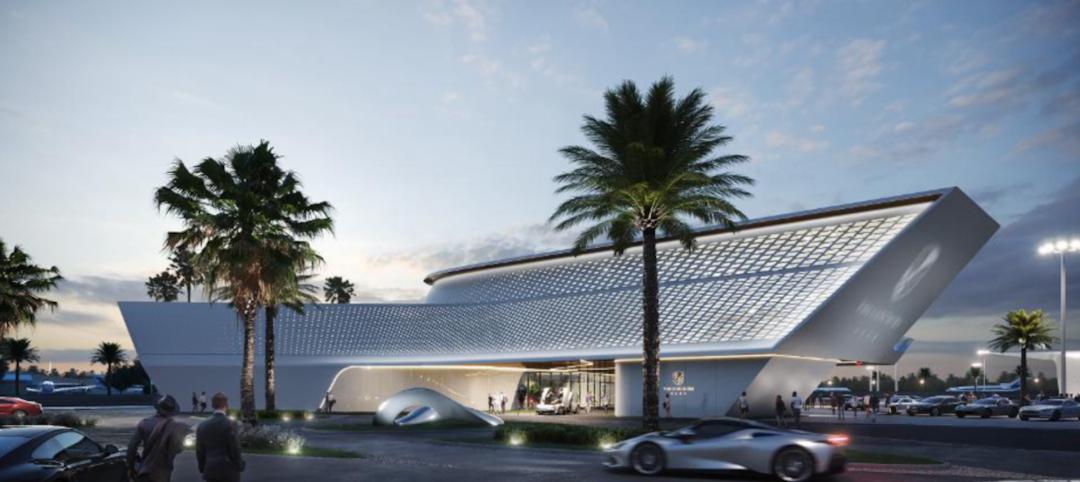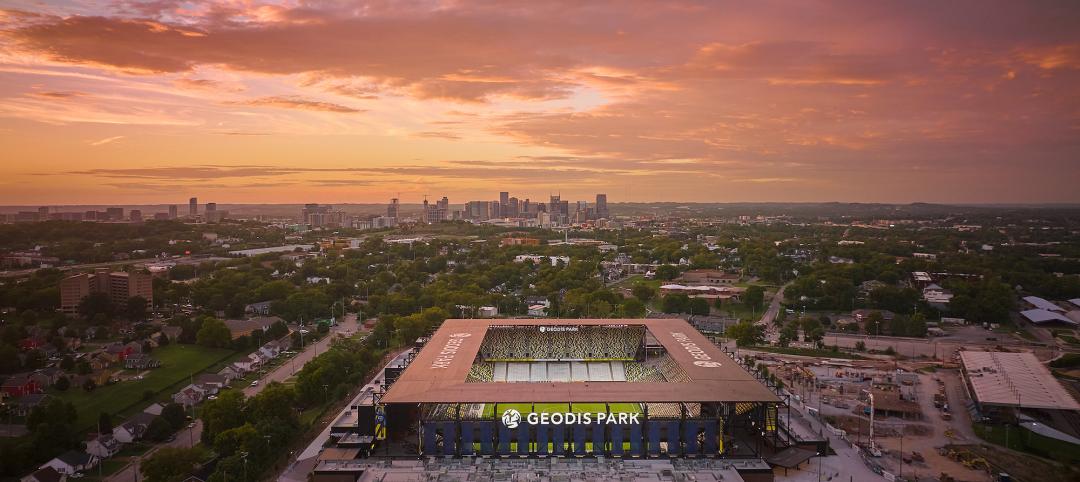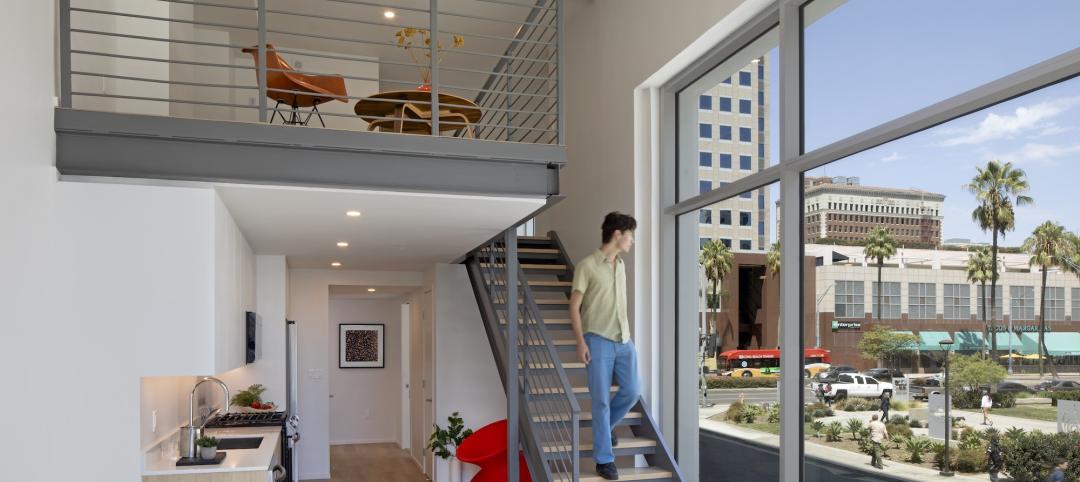How Gensler responded to such seismic events as the coronavirus pandemic, climate change, and social inequality dominates its newly released Annual Report 2020.
Titled “A Time For Transformation,” the 101-page report catalogues how the industry’s largest architecture firm—whose revenue totaled $1.55 billion last year, its 55th in business—has addressed events that, sometimes, were beyond its control.
To keep its projects moving during the pandemic, Gensler moved more than 8,000 to the cloud to allow for ongoing digital collaboration. Its post-pandemic strategies included surveying 2,300 of its employees about working from home (70% of whom said they’d prefer to work in the office the majority of the week); polling residents in four cities—New York, San Francisco, London, and Singapore—last May about their COVID-19 related concerns (one finding: people with children are at least 1.5-times more likely to want to move someplace safer); and posting a steady stream of articles and blogs about this topic.
“The key theme of our thought leadership [is] we must have a new understanding of global wellness that must include social justice, equity and inclusion,” the report states. To that end, the company is following five strategies to fight racism: increase its internal diversity, pursue equitable design solutions, expanding its scholarship program and mentoring of middle and high schoolers, create more job opportunities for Black professionals, and partner with clients on diversity and inclusion initiatives.
Gensler’s Global Race and Diversity Committee, comprised of 22 leaders, oversees the execution of these strategies, and connects with regional committees to amplify the firm’s impact.
The firm is also “doubling down” on its commitment to climate action. In 2019, Gensler professionals worked on more than 7,000 projects representing over 1.5 billion sf of space. Its portfolio that year is designed to save over 16 million metric tons of CO2 emissions, and the firm’s goal is to get to 30 million, and ultimately carbon neutrality within the decade.
LEANING MORE ON TECHNOLOGY
Like most AEC firms, Gensler now champions the application of technology in its design process. The report talks about the firm’s various design tools that include Intelligent Places (which uses data to connect human behavior with space design), inFORM ECOSYSTEM and gblox (which help clients make informed decisions), and its Digital Experience Design service that connects digital and physical design.
Technology also facilitated a month-long global charrette that Gensler opened to everyone in the firm. This is now an ongoing charrette platform.
DESIGN AND COMMUNITY SERVICE HIGHLIGHTED

A confidential technology coworking site in San Francisco's Ferry Building emphasizes the role design plays in human interaction.
Much of the annual report is devoted to highlighting Gensler’s recent projects and concepts. These include a technology coworking site in San Francisco’s Ferry Building that is designed to encourage human connections; Universal Creative Square in Beijing, where Gensler transformed a warehouse into a vibrant office building; and the firm’s concept for Verizon’s Hidden Ridge in Irving, Texas, a 150-acre corporate district that blends three corporate campuses with a mixed-use neighborhood composed of housing, retail and offices, all connected by light rail.
The report calls attention to Gensler’s 15 Design Excellence Award winners in 2019, and its nine Research & Innovation award winners in 2020.
Gensler also touches on how the firm and its employees gave back to their communities. Those efforts included:
•Volunteer fabricators in 22 cities created 3,047 face shields and 1,996 specialty PPE parts that were donated to healthcare workers in U.S. and Costa Rica.
•The firm announced a call to action for each of its 50 offices worldwide to create a measurable change toward equitable housing options beginning in fiscal 2021.
•Its Community Impact model organizes philanthropic and volunteer efforts that target four areas: housing and homelessness, health and wellness, the environment, and the next generation.
Related Stories
Sports and Recreational Facilities | Jan 26, 2023
Miami’s motorsport ‘country club’ to build sleek events center
Designed by renowned Italian design firm Pininfarina and with Revuelta as architect, The Event Campus at The Concours Club will be the first and only motorsport-based event campus located within minutes of a major metro area.
Student Housing | Jan 26, 2023
6 ways 'choice architecture' enhances student well-being in residence halls
The environments we build and inhabit shape our lives and the choices we make. NAC Architecture's Lauren Scranton shares six strategies for enhancing well-being in residence halls.
K-12 Schools | Jan 25, 2023
As gun incidents grow, schools have beefed up security significantly in recent years
Recently released federal data shows that U.S. schools have significantly raised security measures in recent years. About two-thirds of public schools now control access to school grounds—not just the building—up from about half in the 2017-18 school year.
AEC Tech Innovation | Jan 24, 2023
ConTech investment weathered last year’s shaky economy
Investment in construction technology (ConTech) hit $5.38 billion last year (less than a 1% falloff compared to 2021) from 228 deals, according to CEMEX Ventures’ estimates. The firm announced its top 50 construction technology startups of 2023.
Sports and Recreational Facilities | Jan 24, 2023
Nashville boasts the largest soccer-specific stadium in the U.S. and Canada
At 30,105 seats and 530,000 sf, GEODIS Park, which opened in 2022, is the largest soccer-specific stadium in the U.S. and Canada. Created by design firms Populous and HASTINGS in collaboration with the Metro Nashville Sports Authority, GEODIS Park serves as the home of the Nashville Soccer Club as well as a venue for performances and events.
Concrete | Jan 24, 2023
Researchers investigate ancient Roman concrete to make durable, lower carbon mortar
Researchers have turned to an ancient Roman concrete recipe to develop more durable concrete that lasts for centuries and can potentially reduce the carbon impact of the built environment.
Architects | Jan 23, 2023
PSMJ report: The fed’s wrecking ball is hitting the private construction sector
Inflation may be starting to show some signs of cooling, but the Fed isn’t backing down anytime soon and the impact is becoming more noticeable in the architecture, engineering, and construction (A/E/C) space. The overall A/E/C outlook continues a downward trend and this is driven largely by the freefall happening in key private-sector markets.
Multifamily Housing | Jan 23, 2023
Long Beach, Calif., office tower converted to market rate multifamily housing
A project to convert an underperforming mid-century office tower in Long Beach, Calif., created badly needed market rate housing with a significantly lowered carbon footprint. The adaptive reuse project, composed of 203,177 sf including parking, created 106 apartment units out of a Class B office building that had been vacant for about 10 years.
Hotel Facilities | Jan 23, 2023
U.S. hotel construction pipeline up 14% to close out 2022
At the end of 2022’s fourth quarter, the U.S. construction pipeline was up 14% by projects and 12% by rooms year-over-year, according to Lodging Econometrics.
AEC Tech | Jan 19, 2023
Data-informed design, with Josh Fritz of LEO A DALY
Joshua Fritz, Leo A Daly's first Data Scientist, discusses how information analysis can improve building project outcomes.


















